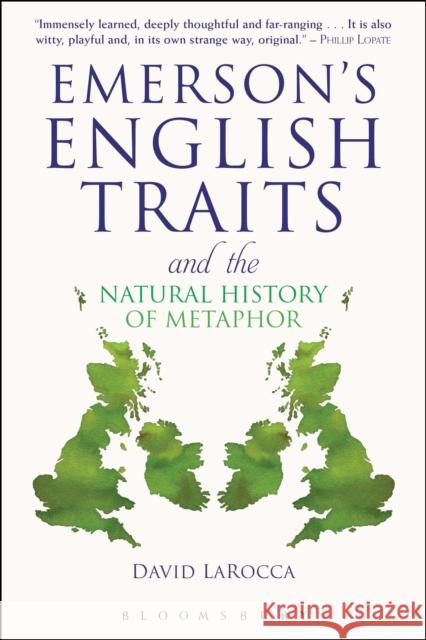Emerson's English Traits and the Natural History of Metaphor » książka
Emerson's English Traits and the Natural History of Metaphor
ISBN-13: 9781441161406 / Angielski / Miękka / 2013 / 408 str.
Metaphors are ubiquitous and yet--or, for that very reason--go largely unseen. We are all variously susceptible to a blindness or blurry vision of metaphors; yet even when they are seen clearly, we are left to situate the ambiguities, conflations and contradictions they regularly present--logically, aesthetically and morally.David LaRocca's book serves as a set of 'reminders' of certain features of the natural history of our language--especially the tropes that permeate and define it. As part of his investigation, LaRocca turns to Ralph Waldo Emerson's only book on a single topic, English Traits (1856), which teems with genealogical and generative metaphors--blood, birth, plants, parents, family, names and race.In the first book-length study of English Traits in over half a century, LaRocca considers the presence of metaphors in Emerson's fertile text--a unique work in his expansive corpus, and one that is regularly overlooked. As metaphors are encountered in Emerson's book, and drawn from a long history of usage in work by others, a reader may realize (or remember) what is inherent and encoded in our language, but rarely seen: how metaphors circulate in speech and through texts to become the lifeblood of thought. A reader may come away believing that metaphors cannot be skimmed off a text without loss--that they are ineluctably part and parcel of its meanings.In hybrid fashion, LaRocca endeavors to employ some of the strategies and methods of the natural scientific curator as well as the literary-philosophical florilegist to offer new reflections on Emerson's exceptional, anomalous book. In the wake of LaRocca's study, and the prismatic remarks he has collected, we may take note that a change in metaphors entails a change in morals. English Traits serves as an example of how, for example, natural scientific metaphors are especially salient for their moral import and effects.











